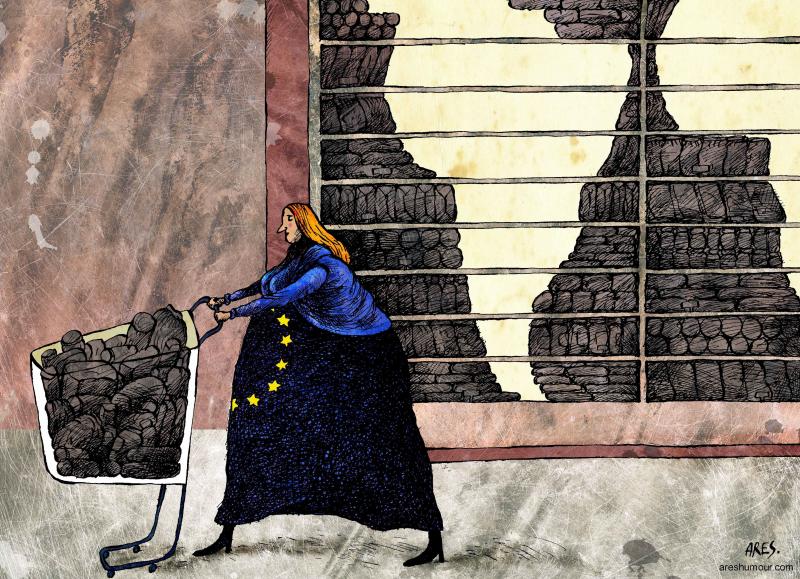
Europe's resource grab – Vested interests at work in the European Parliament
On 30 June, the European Parliament’s industry, energy and research committee (ITRE) is due to vote on the EU’s Raw Materials Initiative, establishing guidelines for Europe's future policy on natural resource use. The Parliament’s report could effectively give the green light to mining in protected European nature reserves as well as a resource grab in Asia, Africa, the Americas and the Arctic.
The vote follows fierce calls from a number of MEPs with close links to industry for European big business to be allowed to exploit other countries’ raw materials without any restrictions – via trade, development and even military policies. MEPs have also tried to block strong language in the report on the need to stop corporate abuse in the extraction sector and to reduce Europe’s over-consumption of raw materials.
Several of the MEPs pushing this aggressive agenda are from the European People’s Party (EPP) and have close links to industry sectors which have a vested interest in the raw materials debate (Bendt Bendtsen – Denmark; Herbert Reul and Daniel Caspary – Germany).
Others such as Paul Rübig MEP (EPP, Austria) seem to have clear conflicts of interests. Rübig profits from companies which depend heavily on the access to cheap raw materials. He also has close connections with industry lobby groups which have tried to shape the EU’s Raw Materials Initiative. Nonetheless, Rübig is one of the lead persons in the debate in Parliament and has set up a cross-party group of MEPs, the European Raw Materials Group, which will follow the issue, working closely with a parallel industry group.
Another MEP who appears to have a distinct conflict of interest is Elmar Brok (EPP, Germany) who has argued for military backing for the EU's resource policy. Brok is employed by media giant Bertelsmann, the parent group of Arvato Services Technical Information, which sells IT services to clients in the military sector.
Following the Parliament’s cash for influence scandal earlier this year, when three MEPs were caught accepting cash in return for amending laws, MEPs lobbying links have been under close scrutiny. A parliamentary working group, chaired by the President of the Parliament, Jerzy Buzek, was established to develop a code of conduct for MEPs and is scheduled to conclude its deliberations this week. The findings of this report underline the importance of tackling the issue of conflicts of interest in the Parliament. In particular, it is vital that the new code of conduct for MEPs bans all second jobs that involve lobbying or which require an MEP to act in another's interests ie. by being a board member of a company. There also needs to be regulation of all cross-party groups, including MEP-industry forums.
Read the full report:
